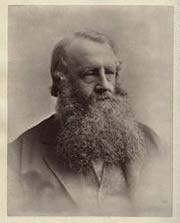
John Locke
Some Thoughts Concerning Education
Of Cruelty
「1693」John Locke, “Of Cruelty,” in Some Thoughts Concerning Education (London, 1693).
「1693」John Locke, “Of Cruelty,” in Some Thoughts Concerning Education「Google Books」(1693; London, 1712).
One thing I have frequently observed in Children, that when they have got possession of any poor Creature, they are apt to use it ill: They often torment, and treat very roughly young Birds, Butterflies, and such other poor Animals, which fall into their Hands, and that with a seeming kind of Pleasure. This I think should be watched in them, and if they incline to any such Cruelty; they should be taught the contrary Usage.
Children should from the beginning be bred up in an abhorrence of killing, or tormenting any living Creature.
Cruelty.
§.110. One thing I have frequently observed in Children, that when they have got possession of any poor Creature, they are apt to use it ill : They often torment, and treat very roughly young Birds, Butterflies, and such other poor Animals, which fall into their Hands, and that with a seeming kind of Pleasure. This I think should be watched in them, and if they incline to any such Cruelty; they should be taught the contrary Usage. For the custom of tormenting and killing of Beasts will, by degrees, harden their Minds even towards Men; and they who delight in the suffering and destruction of inferiour Creatures, will not be apt to be very compassionate or benigne to those of their own kind. Our Practice takes notice of this in the exclusion of Butchers from Juries of Life and Death. Children should from the beginning be bred up in an abhorrence of killing, or tormenting any living Creature; and be taught not to spoil or destroy any thing, unless it be for the preservation or advantage of some other that is Nobler. And truly, if the preservation of all mankind, as much as in him lies, were every one’s persuasion, as indeed it is every one’s Duty, and the true Principle to regulate our Religion, Politicks and Morality by, the world would be much quieter, and better natur’d than it is. But to return to our present Business, I cannot but commend both the Kindness and prudence of a Mother I knew, who was wont always to indulge her Daughters, when any of them desired Dogs, Squirils, Birds or any such things, as young Girls use to be delighted with. But then, when they had them, they must be sure to keep them well, and look diligently after them, that they wanted nothing, or were not ill used : For if they were negligent in their Care of them, it was counted a great Fault, which often forfeited their Possession, or at least they fail’d not to be rebuked for it; whereby they were early taught Diligence and good Nature. And indeed, I think People should be accustomed, from their Cradles, to be tender to all sensible Creatures, and to spoil or waste nothing at all. This delight they take in doing of mischief, whereby I mean spoiling of any thing to no purpose; but more especially the Pleasure they take to put any thing in Pain, that is capable of it, I cannot persuade my self to be any other than a foreign and introduced Disposition, an habit borrowed from custom and Conversation. People teach Children to strike, and laugh, when they hurt, or see harm come to others; And they have the Examples of most about them, to confirm them in it. All the Entertainments and talk of History if of nothing almost but Fighting and Killing : And the Honour and Renown, that is bestowed on Conquerours (who for the most part are but the great Butchers of Mankind) farther misleads growing youth, who by this means come to think Slaughter the laudable Business of Mankind, and the most Heroick Vertue. This Custom plants unnatural Appetites, and reconciles us to that, which it has laid in the way of Honour. Thus by Fashion and Opinion that comes to be a Pleasure, which in it self neither is, nor can be any. This ought carefully to be watched, and early remedied, so as to settle and cherish the contrary and more natural Temper of Benignity and Compassion in the room of it : But still by the same gentle Methods, which are to be applied to the other two Faults before mentioned. But pray remember, that the Mischiefs, or Harms, that come by Play, Inadvertency, or Ignorance, and were not known to be Harms, or designed for Mischief’s sake, though they may perhaps be sometimes of considerable damage, yet are not at all, or but very gently to be taken notice of. For this, I think, I cannot too often inculcate, That whatever miscarriage a Child be guilty of, and whatever be the consequence of it, the thing to be regarded in taking notice of it, is only, what root it springs from, and what habit it is like to establish; and to that the Correction ought to be directed, and the Child not to suffer any punishment for any harm may have come by his play or inadvertency. The Faults to be amended lie in the Mind; and if they are such as either Age will cure, or no ill habits will follow from the present Action, whatever displeasing Circumstances it may have, is to be passed by without any animadversion.



